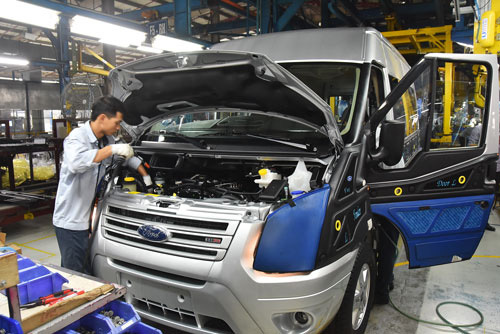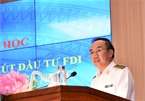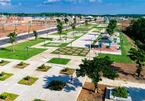Investment incentives are one of the most important issues of the draft amended investment law being discussed by the National Assembly as Vietnam is competing with regional countries to attract new FDI from investors leaving China and seeking new destinations.

Under the draft law, financial incentives would be given in three fields – corporate income tax, import/export tax; finance and land; and accelerated depreciation.
As Vietnam has become more selective in attracting FDI, the draft law shows the list of business fields in which Vietnam encourages investments.
| Investment incentives are one of the most important issues of the draft amended investment law being discussed by the National Assembly as Vietnam is competing with regional countries to attract new FDI from investors leaving China and seeking new destinations. |
These include high technologies; hi-tech supporting industry products; new material production, new clean renewable energy; electronics and key mechanical engineering, agricultural machines, automobiles and car parts; shipbuilding; IT and software; farm, forestry and seafood culture and processing; and waste treatment.
The business fields listed are in line with the investment encouragement policy stipulated in the Politburo’s Resolution No 50.
“These are the business fields that can create high added value. If they can develop thanks to investment incentives, this will help accelerate economic restructuring associated with the changes of the growth model towards sustainability, bringing higher income to the state budget,” said Vu Hong Thanh, chair of the National Assembly’s Economics Committee.
Regarding the incentives, some experts believe that Vietnam should only offer outstanding incentives to some special business fields, especially high technologies, while it should only give normal incentives to the fields popular in Vietnam.
Vu Thanh Tu Anh from the Fulbright School for Public Policy and Management stressed that the policies, the implementation of the policies and Vietnam’s preparation will determine the quantity and quality of the FDI flow that the economy can attract.
He warned that if Vietnam doesn’t have reasonable policies, it would only be able to attract the projects that do the outsourcing and use old technologies. If so, Vietnam won’t be able to escape the ‘outsourcing trap’ and this will aggravate the current structure and hinder efforts towards restructuring.
Nguyen Mai, chair of the Vietnam Association of Foreign Invested Enterprises (VAFIEs), said that Vietnam needs to attract high-quality, environmentally-friendly and high-tech projects as stipulated in the Politburo’s Resolution No 50.
According to Hirai Shinji, chief representative of JETRO in HCM City, before the Covid-19 epidemic broke out, Vietnam was one of the three choices for Japanese investors.
The additional investment capital registered by Japanese investors in Vietnam saw the sharpest increases among existing foreign investors in Vietnam, above Chinese and Japanese.
Shinji said though it is still too early to assess the changes before and after the epidemic, Vietnam is still the top choice of Japanese enterprises.
Linh Ha

Transfer pricing among FDI firms in Vietnam at alarming rate: State Audit
While FDI firms continue to report losses, they keep expanding operations in the country.

FDI is important for VN's real estate market recovery
Foreign direct investment (FDI), which will help the economy recover after Covid-19, is also a driving force for the recovery of the real estate market.
 Under the draft law, financial incentives would be given in three fields – corporate income tax, import/export tax; finance and land; and accelerated depreciation." itemprop="description" />
Under the draft law, financial incentives would be given in three fields – corporate income tax, import/export tax; finance and land; and accelerated depreciation." itemprop="description" />